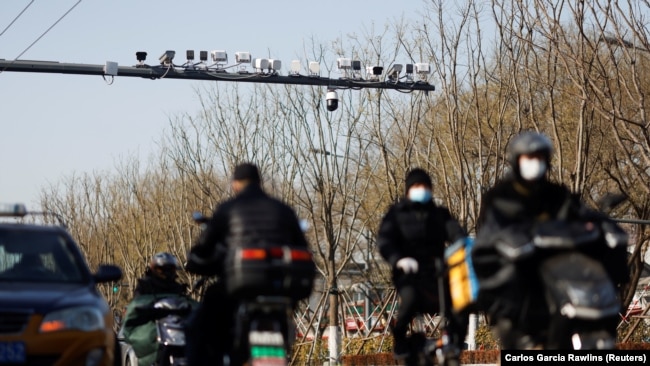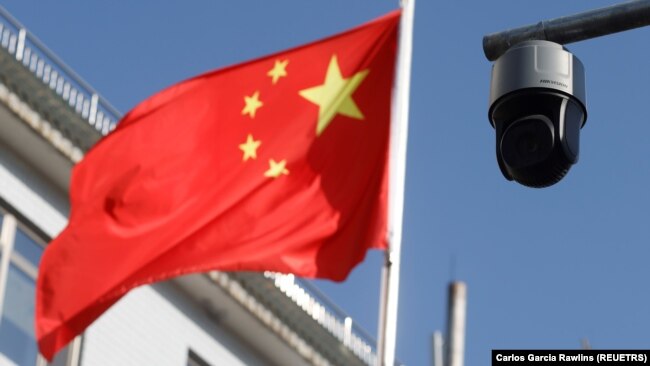中国、外国人をターゲットにした監視システムを可動
これが中国白書にあった”高度で独自な民主主義”なのでしょうか。
アメリカなど先進国には多くの中国人留学生や大学教授などがいます。これを用いれば、私たちにとっての監視すべき人々ということになります。その人たちは、多くを学び、自国の発展に寄与し、国家情報法により中国政府の情報活動に協力する義務があります。
孔子学院、孔子教室なるものが世界中にあり、そのスローガンは「中国語を世界語に」です。
あなたは中国に留学したいですか? 中国のシリコンバレー深センで夢を叶えたいですか? 潤沢な研究費のある大学に移りたいですか?
VOAで英語を学び、世界を知りましょう!!
中国、ジャーナリストや留学生を監視システムで狙う (和訳)
China to Target Journalists, Foreign Students with Surveillance System
中国・Henan province河南省の治安当局は、留学生やレポーターなどの”不審者”を監視するための新たな監視システムの導入を進めています。この情報はロイター通信によるものです。
ロイター通信は、河南省政府のウェブサイトに掲載された文書を調査しました。この文書は最近までオンラインで公開されていたものです。
河南省は中国の中央部に位置し、中国で3番目に人口の多い省です。
7月に公開された文書では、河南省のシステムの計画が説明されていました。その文書によると、このシステムには3,000台の顔認識カメラが設置され、国や地方のデータベースに接続されており、レポーターや留学生などの個別ファイルを作成するといいます。
その文書によると、政府は9月17日に中国のハイテク企業であるNeusoft社に782,000ドルを支払らっています。同社にはシステム構築のために2ヶ月間の猶予が与えられました。ロイターは、このシステムが現在稼働しているかどうかを確認できませんでした。
中国は、安全保障の専門家が世界で最も進んだ監視技術ネットワークの一つと評するものを構築しています。すでに公共の場には数百万台のカメラが設置されており、顔認識技術や携帯電話の追跡機能の利用を増やしています。
米国の監視調査会社IPVM社は、拡大する中国の監視ネットワークに注目しています。IPVM社によると、河南省の文書が注目に値するのは、記者をターゲットとして挙げ、公安当局が記者を素早く見つけ出して活動を停止させる方法を示しているからだといいます。
この文書は、11月29日に公開されなくなりました。

One of Neusoft's office building in Beijing, China on Nov. 24, 2021. The Chinese company was given $782,000 and two months to create a system that will track journalists, international students, and other "suspicious people." (REUTERS/Carlos Garcia Rawlins2021年11月24日、中国・北京にあるNeusoft社のオフィスビルの1つ。この中国企業は、ジャーナリストや留学生などの "不審者 "を追跡するシステムを作るために、78万2,000ドルと2カ月の期間を与えられた。(REUTERS/Carlos Garcia Rawlins)
追跡され、管理される
河南省公安局の200ページ近い文書には、なぜ記者や留学生を尾行したいのか、その理由は書かれていません。また、この文書では、システムが尾行すべき別のグループとして”不法滞在者である近隣諸国の女性”を挙げています。
この文書では、疑わしい人物を追跡し、管理しなければならないとしています。カメラは、顔の一部が覆われている人に対しても、信頼できるファイルを構築できなければならないとしています。また、対象となる人物は、写真や顔写真を使ってデータベースで検索できるようにしなければならないとしています。
少なくとも2,000人の政府関係者と警察官がこの監視システムを使用します。
この文書によると、記者は危険度の高い順に赤、黄、緑の3つのグループに分けられます。記者が河南省のホテルに登録したり、チケットを購入したり、省境を越えたりすると警告が発せられるといいます。
また、この文書では、携帯電話の位置情報や旅行中の行動などを利用して、留学生の動向を追跡できるようにすべきだとしています。また、国の建国記念日や年に一度の国会などの重要な日には、特に注意深く留学生を追跡すべきだとしています。

Security cameras overlook a street as vehicles pass under in Beijing, China on Nov. 25, 2021. The system will alert police and officials if people who have been grouped as a "risk" cross a border, or perform other activities. (REUTERS/Carlos Garcia Rawlins)2021年11月25日、中国・北京で、車が下を通る通りを見下ろす防犯カメラ。このシステムは、”リスク”としてグループ化された人々が国境を越えたり、その他の活動を行ったりすると、警察や当局に警告する。(REUTERS/Carlos Garcia Rawlins)
メディアコントロール
報道の自由団体によると、中国のXi Jinping 習近平国家主席が2012年に就任して以来、与党の中国共産党がメディアへの統制を強めているといいます。
2月、中国外国特派員クラブ(FCCC)は、中国は2020年にコロナウイルス対策、恐怖心、国内への制限を利用して、外国の報道を制限したと発表しました。
当時の中国外務省は、FCCCの報告を "根拠のないもの "としています。同省は、中国は常に、法律に従えば、あらゆる国のメディア関係者が中国でニュースを取材することを歓迎していると述べています。
China to Target Journalists, Foreign Students with Surveillance System
Security officials in China’s Henan province are working toward a new surveillance system meant to follow international students, reporters and other “suspicious people.” That information comes from the Reuters news agency.
Reuters examined documents published on Henan’s government website. The documents were until recently publicly available online.
Henan is in central China. It is the country’s third-largest province by population.
A document published in July explained plans for the Henan system. The document says that the system will involve 3,000 facial recognition cameras that connect to national and local databases. The system will create individual files on reporters, international students and others.
The document shows the government paid $782,000 to the Chinese tech company Neusoft on September 17. The company was given two months to build the system. Reuters could not confirm if the system is currently operational.
China is building what security experts describe as one of the world’s most advanced surveillance technology networks. The country already has millions of cameras in public places and is increasing its use of facial recognition technology and mobile phone tracking.
United States-based surveillance research firm IPVM has closely followed China’s growing surveillance network. It said the Henan document was notable because it named reporters as targets and showed how public security officials could quickly find them and stop them from working.
The document was no longer available to the public on November 29.
Followed and controlled
The nearly 200-page document from the Henan Public Security Department does not explain why it wants to follow reporters or international students. The document also named “women from neighboring countries that are illegal residents” as another group of people the system should follow.
The document says suspicious people must be followed and controlled. It said cameras must be able to build a dependable file for individuals whose faces are partly covered. It also said that those targeted must be searchable on databases by using a picture or searching a facial description.
At least 2,000 officials and police officers will use the surveillance system.
The document said reporters will be put into three groups: red, yellow and green, in decreasing order of risk. A warning will be set off if a reporter registers at a Henan hotel, buys a ticket or crosses the provincial border.
The document also said the system should be able to follow the movements of international students through methods such as mobile phone positioning and travel activity. It said students should be followed especially closely during important dates such as the country’s national day or the yearly meeting of parliament.
Media control
Press freedom groups say the ruling Chinese Communist Party has increased control over the media since Chinese President Xi Jinping took office in 2012.
In February, the Foreign Correspondents’ Club of China, or FCCC, said China used coronavirus prevention measures, fear, and restrictions into the country to limit foreign reporting in 2020.
The Chinese foreign ministry at the time called the FCCC report “baseless.” It said China always welcomed media members from all countries to cover news in China when they followed the law.
Words in This Story
file – n. a collection of documents that have information you want to keep and that are stored so that they can be found easily
track – v. to follow and find (someone or something) especially by looking at evidence
resident – n. someone who lives in a particular place
ticket – n. a piece of paper that allows you to see a show, participate in an event, or travel on a vehicle
